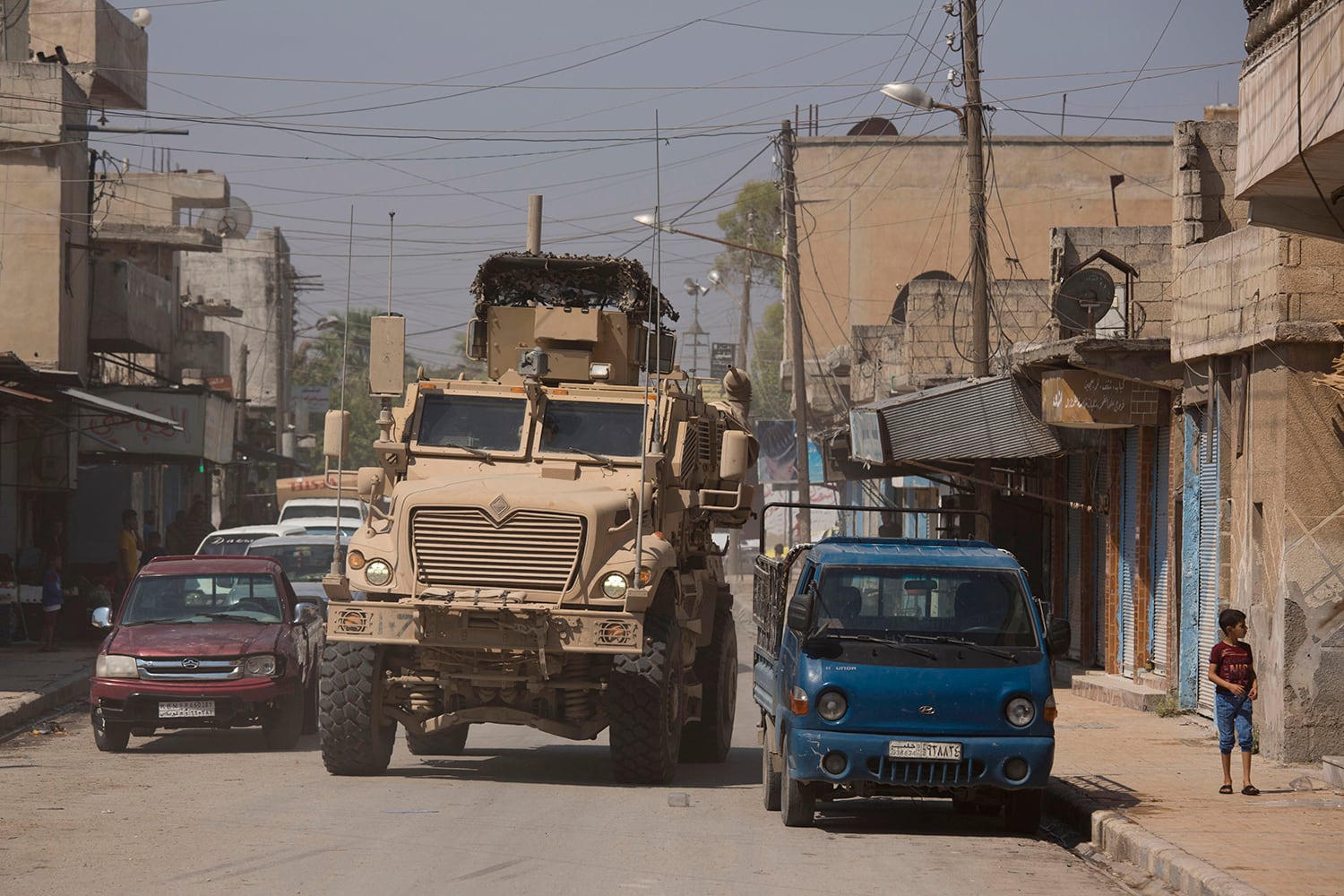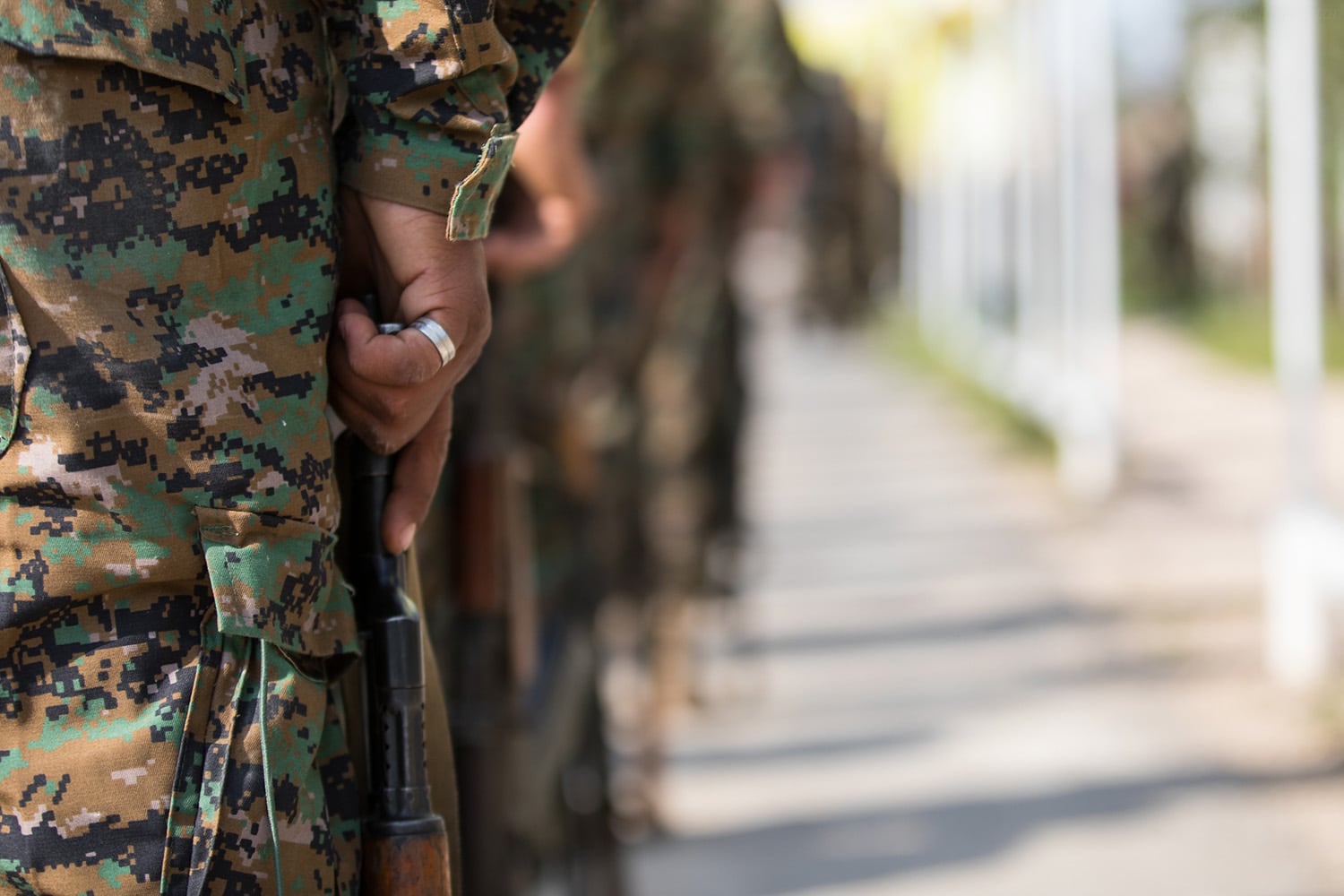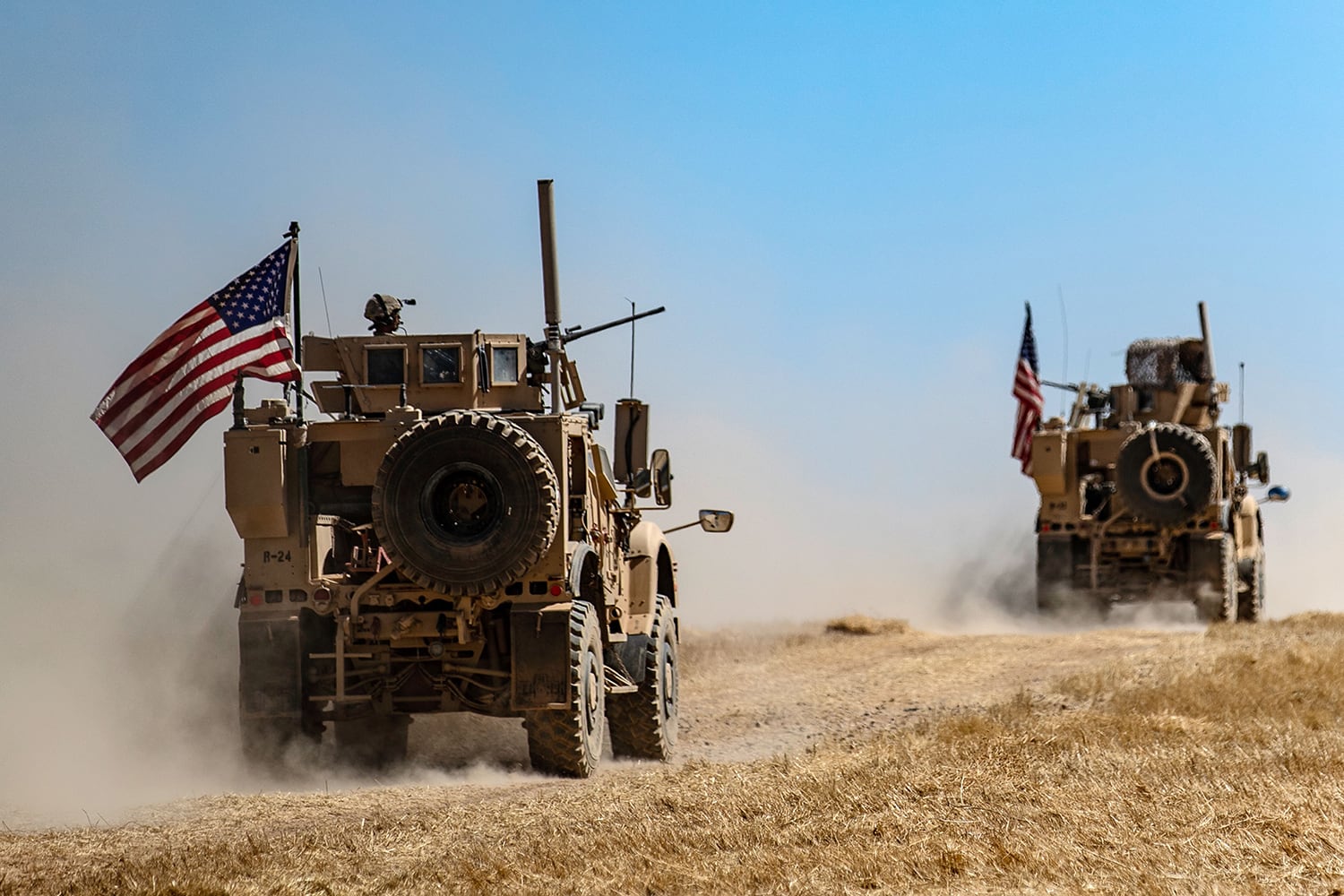A bipartisan report is calling on the U.S. to halt its withdrawal of U.S. forces from Syria, or risk a resurgence of ISIS fighters and entrenchment of Iranian forces in the region.
The congressionally mandated Syria Study Group released its findings Tuesday with dire warnings that the Syrian civil war that has ravaged the country for nearly eight years is not winding down and is entering a new phase.
Absent U.S. assistance in the region, America risks handing the reins of the country’s future to a resurgent ISIS, al-Qaida offshoots and the maligned interests of Iran, Russia and other actors in the region.
Currently, the U.S. maintains a small footprint of American troops in northeast Syria and at a small outpost near the Syria-Iraq border known as Tanf.
The report criticized President Donald Trump’s decision to withdraw forces from the region and characterized “sharp shifts and reversals” in U.S. policy as undermining American “credibility.”
“The United States cannot avoid or ignore the conflict in Syria,” the report reads.
“The United States and its allies retain tools to address those threats and the leverage to promote outcomes that are better for American interests than those that would prevail in the absence of U.S. engagement,” the report reads.
RELATED

The Geneva-led effort and the Turkey, Russia and Iran supported Astana peace process have failed to find a political settlement to the conflict.
Despite claims that Syrian Bashar al-Assad has defeated the rebels, the report said the authoritarian leader’s control of roughly 60 percent of the country is “tenuous.”
Beyond Damascus, Assad’s forces are at the mercy of Russian and Iranian support to hold down territory reclaimed by government forces.
In April, Assad’s forces backed by Russian air power launched a major offensive against the last rebel strong hold in Syria’s Idlib province.
Syria’s incursion into the al-Qaida controlled province provoked condemnation from Turkey, among others, and broke a de-escalation agreement accepted in September 2018.
Syria’s ongoing offensive in Idlib presents a conundrum for U.S. policy makers who wish to see the destruction of al-Qaida offshoots like Hayat Tahrir al-Sham in Idlib, but also the amelioration of the worsening humanitarian disaster in the province.
According to a UN report published in August, more than 500 civilians have been killed and over 500,000 have been displaced since fighting erupted in Idlib in April.
“The effect of the hostilities on civilian infrastructure remained severe as vital facilities such as hospitals, bakeries, schools and water pumping stations have been damaged or destroyed by air strikes and shelling,” the UN report reads.
While Trump characterized Russia’s indiscriminate bombing of Idlib as “butchery” in a June tweet, the U.S. conducted a strike against an al Qaida-in-Syria facility north of Idlib on Aug. 31.

“Northwest Syria remains a safe haven where AQ-S [al Qaida in Syria] leaders actively coordinate terrorist activities throughout the region and in the West,” Lt. Col. Earl Brown, a spokesman for U.S. Central Command, said in a news release.
"With our allies and partners, we will continue to target violent extremists to prevent them from using Syria as a safe haven,” Brown said in the release.
The Syria Study Group noted that while the U.S. lacks the ability to conduct a “full-fledged counterterrorism campaign” in terrorist controlled regions like Idlib, the U.S should “explore avenues to increase the pressure on terrorist groups in Idlib.”
The report also recommended the U.S. should put pressure on the Assad regime to stop targeting civilians.
RELATED

The report also warned that ISIS is not defeated in Syria despite the liberation of much of the terrorist group’s territory by coalition forces and their partners the Kurdish-dominated Syrian Democratic Forces.
ISIS has morphed into an insurgency waiting to exploit calamitous events that could help it recruit new fighters and regain lost ground, according to the report.
Those triggering events could be an offensive by Syrian forces across the Euphrates into SDF territory, an incursion by Turkish forces into northeast Syria, or the SDF’s inability to hold onto thousands of ISIS fighters it has detained.
Turkey views the YPG, a group under the larger SDF umbrella, as an armed wing of the Kurdistan Workers’ Party, or the PKK — a group Turkey contends is a terrorist organization.
Washington’s arming of the SDF has soured relations with Ankara. Turkey has repeatedly threatened an invasion of northeast Syria to combat group’s it sees as aligned with the PKK.
To reduce tensions and prevent an unraveling of gains made by the SDF, the U.S. and Turkey agreed to joint patrols and the destruction of YPG fortifications and withdrawal of YPG forces from those areas.
But, a withdrawal of U.S. forces will complicate efforts to assist SDF forces or to keep tabs on sensitive diplomatic efforts.
The U.S. has already conducted a partial withdrawal from Syria, according to a DoD inspector general’s report.
In the inspector general’s report, Operation Inherent Resolve — the U.S.-led coalition to defeat ISIS in Iraq and Syria — the withdrawal of U.S. forces from Syria could be “detrimental” to the mission to defeat ISIS militants and could lead to the “collapse” of established governance structures in liberated territories.
OIR also said the withdrawal decreased assistance it could provide its Syrian partners at a time when the SDF needs more training and equipment for counterinsurgency operations.
The SDF is also contending with Arab resentment to its governance in liberated regions, an issue that could be exploited by ISIS, the Syria Study Group report detailed.
“ISIS will seek to take advantage of any opening, whether a reduction in U.S. counterterrorism pressure or discontent among eastern Syria’s Arab population, to recruit new fighters and mount attacks,” the report reads.
Shawn Snow is the senior reporter for Marine Corps Times and a Marine Corps veteran.




